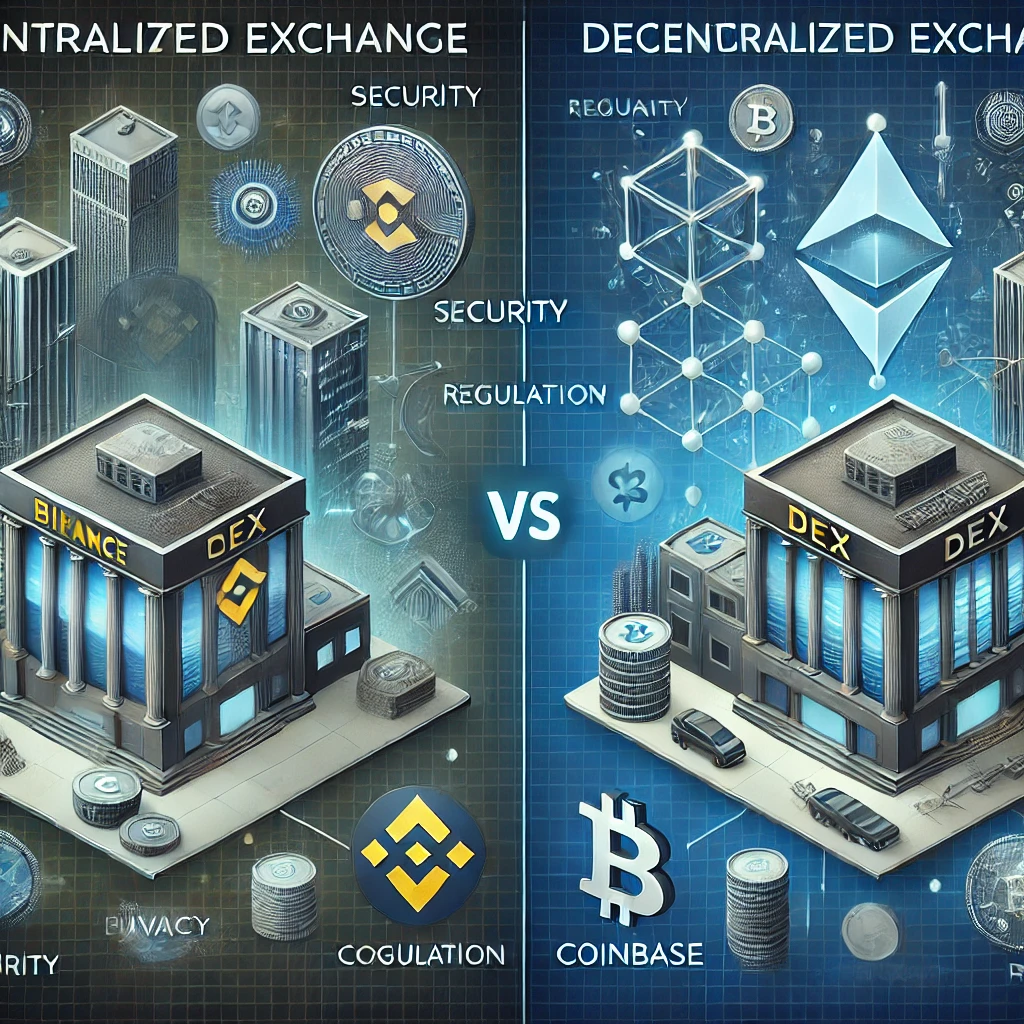
Centralized vs Decentralized Exchanges Key Differences and Advantages

The world of cryptocurrency trading is divided into two main types of exchanges: centralized exchanges (CEXs) like Coinbase, Binance, and Gate.io, and decentralized exchanges (DEXs) like Uniswap, PancakeSwap, and dYdX. While both serve the same fundamental purpose—facilitating the buying and selling of cryptocurrencies—they operate in entirely different ways. Understanding their differences can help traders choose the best platform for their needs.
What is a Centralized Exchange (CEX)?
A centralized exchange (CEX) is a trading platform managed by a company or an entity that acts as an intermediary between buyers and sellers. Popular examples include Binance, Coinbase, and Gate.io. These platforms offer high liquidity, user-friendly interfaces, and strong security measures but require users to trust the exchange with their funds.
Advantages of Centralized Exchanges
User-Friendly Interface: CEXs provide an intuitive and easy-to-use trading experience, making them ideal for beginners.
High Liquidity: Since CEXs pool liquidity from a large number of users, they offer faster trade execution and less price slippage.
Customer Support: Users have access to support teams to resolve issues, unlike DEXs where users must manage their own transactions.
Advanced Trading Features: CEXs offer futures trading, margin trading, staking, and fiat onramps, making them a one-stop shop for traders.
Security Measures: While centralized exchanges are common targets for hacks, they also implement robust security measures such as insurance funds and two-factor authentication (2FA).
What is a Decentralized Exchange (DEX)?
A decentralized exchange (DEX) allows users to trade cryptocurrencies directly from their wallets without relying on a central authority. Popular DEXs include Uniswap, PancakeSwap, and dYdX. Trades occur through smart contracts, making the platform non-custodial and resistant to censorship.
Advantages of Decentralized Exchanges
Full Control Over Funds: Users maintain ownership of their crypto assets, eliminating the risk of exchange hacks or withdrawal restrictions.
Privacy & Anonymity: DEXs don’t require KYC (Know Your Customer) verification, allowing for anonymous trading.
No Central Authority: Since there is no intermediary, there is less risk of manipulation or fraud.
Access to New Tokens: Many new projects launch their tokens on DEXs before listing on centralized exchanges, giving traders early investment opportunities.
Censorship Resistance: Governments or regulators cannot easily shut down a decentralized exchange, ensuring free and open access to trading.
Key Differences Between CEXs and DEXs
| Feature | Centralized Exchanges (CEX) | Decentralized Exchanges (DEX) |
|---|---|---|
| Custody | Exchange holds user funds | Users hold their own funds |
| Security | High but prone to hacks | Secure if wallet is protected |
| Anonymity | Requires KYC verification | No KYC required |
| Liquidity | High liquidity and fast trades | Lower liquidity and possible slippage |
| User-Friendliness | Beginner-friendly | Requires more technical knowledge |
| Trading Features | Supports margin, futures, staking | Limited to spot trading |
| Regulation | Subject to government oversight | Harder to regulate and control |
Which One Should You Choose?
Choose a CEX if: You prefer a user-friendly platform, need customer support, and want access to advanced trading features.
Choose a DEX if: You prioritize privacy, security, and full control over your assets.
Both centralized and decentralized exchanges offer unique advantages, and the best choice depends on individual needs and risk tolerance. While CEXs provide convenience and liquidity, DEXs offer decentralization, privacy, and full asset control. As the crypto space evolves, a hybrid approach—using both types of exchanges—might be the smartest strategy for traders.









Comments